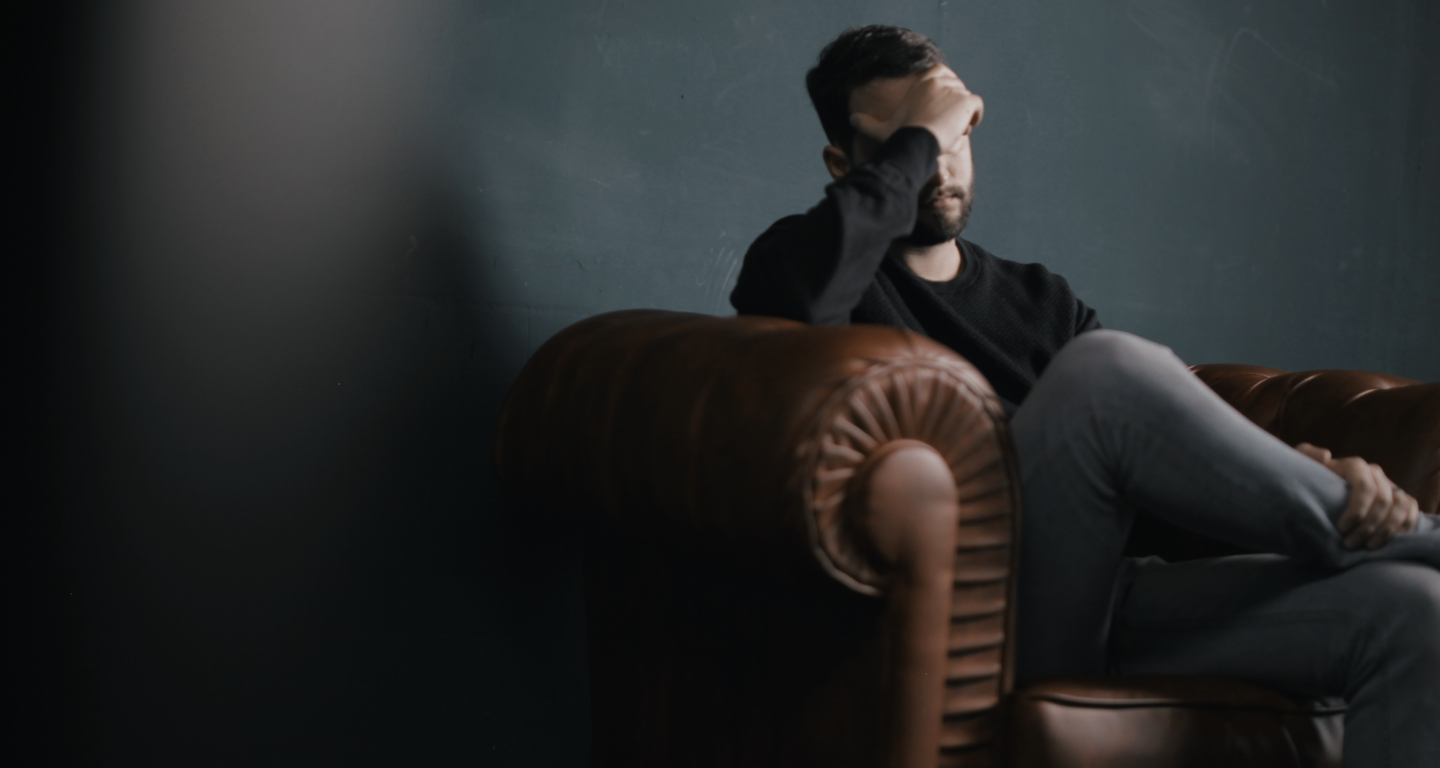Have you ever walked down the street and thought to yourself “I wonder what would happen if this streetlight just fell on my head?" How about thinking of your friend’s upcoming birthday dinner and wondering if anyone will stare at and judge you while you’re eating? Or perhaps obsessing over your upcoming doctor’s appointment and thinking through all the possible life-threatening diagnoses that could come out of it. If any of these scenarios sound familiar, you may be experiencing an anxiety disorder.
While these examples may seem extreme to those unfamiliar with anxious thought patterns, this is often the reality of what someone who experiences anxiety lives with on a day-to-day basis. According to NAMI (National Alliance of Mental Illness), anxiety disorders are the most common mental health issue Americans face, affecting over forty million adults. Of those forty million, most probably started experiencing symptoms before the age of twenty-one. When looking deeper into these millions of people, it turns out that women are almost 10% more likely to experience anxiety. Not only are women more likely to experience anxiety, they are also more prone to experience a more intense form of it.
If you’re reading these facts with sirens going off in your head, don’t be alarmed. Let’s talk about some of the symptoms of anxiety so that you or a loved one can be aware of some of the early warning signs. Although this mental health condition is the most common, it can have a serious impact on your emotional functioning and your physical health. Some of the physical effects of anxiety include a racing heart, tightness in your chest, difficulty breathing, sweating, panic attacks, and even upset stomach or diarrhea. People with anxiety often also find it hard to fall asleep and stay asleep. Emotionally, you may find it hard to focus and feel depressed, overwhelmed, or tense.
While this may not feel true to those who suffer from anxiety, one thing to consider is that many anxious thoughts are actually illogical, meaning they are not based in reality. Thinking back to our earlier examples, how likely is it that the streetlight will fall on your head, or that people will care about how much chicken parmesan you eat, or that you will be diagnosed with a life-threatening disease at your upcoming appointment, despite being mostly healthy? And yet, our minds often cannot tell the difference between a perceived threat and an actual threat, leaving the body and mind to deteriorate.
We all have experienced anxiety at some point in our lives as it is a normal human emotion, but if you’re finding that anxiety is impacting your day-to-day functioning and stopping you from experiencing life the way you want to, it might be time to get some help. If you’re having trouble controlling your thoughts and are finding yourself more avoidant of situations or places, you'll be relieved to know that there are mental health professionals that are here to help.
How to Get Help
Acknowledging how anxious thoughts impact your life is the first step on the road to recovery. Living in fear is not something anyone should have to experience, and luckily there are several treatments to help combat these irrational fears. Several psychotherapies such as cognitive behavioral therapy (“CBT”) and acceptance and commitment therapy (“ACT”) offer evidenced-based treatments to help mitigate symptoms and gain control over your thoughts. Talking through past trauma and experiences that are rooted in anxiety to understand more about your triggers can also increase your awareness around your anxiety symptoms and explore specific coping strategies in response. In combination with these efforts, psychotropic medication has also been shown to decrease anxiety levels.
Finding the right fit in therapy can be time consuming, but taking it one step at a time may help the process feel less overwhelming. Start by figuring out what types of therapy resonate with you to help narrow in on what type of mental health professional will be the right fit. Do you strictly want a therapist that helps you question your thoughts and how they impact behaviors? Or do you want a therapist that dives into your childhood and how the anxiety may be impacted by past experiences? This can direct your search towards therapists with either more behavioral or psychodynamic orientations.
Rest assured that anxiety disorders are treatable in a variety of ways and there’s no one size fits all approach. Once you think you’ve found your fit, you can expect your first appointment to be a bit more focused on gathering information about how anxiety is impacting your life and it will also be an opportunity for you to assess your comfort level with your chosen mental health professional. Treatment moving forward should be individualized and eventually your sessions will provide you with the tools to gain a sense of understanding and resilience to combat anxiety. While the initial outreach may feel daunting, know that your future self will thank you for making sure you no longer have to live a life filled with fear.
References
Anxiety disorders. NAMI. (n.d.). https://nami.org/About-Mental-Illness/Mental-Health-Conditions/Anxiety-Disorders
U.S. Department of Health and Human Services. (n.d.). Any anxiety disorder. National Institute of Mental Health. https://www.nimh.nih.gov/health/statistics/any-anxiety-disorder

